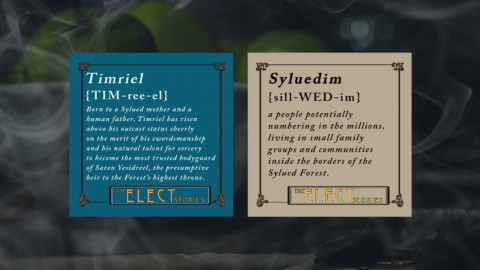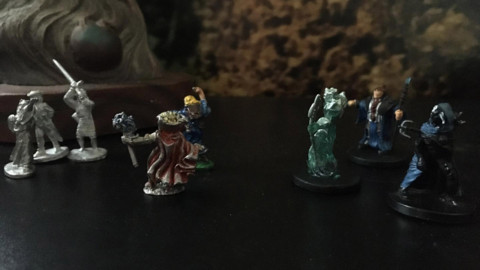Plato wrote about the concept of “telos” as being a “perfect paradigm” or “ultimate version” of whatever was being discussed. His student Aristotle and his contemporaries expanded upon the idea, saying that everything and everyone has its own form of telos to achieve, that being their own “purpose” in life, or “reason for being.” Philosophers ever since have been debating the meaning of “purpose” and “reason.” The stoics said that telos meant living life according to nature’s purposes, while the epicureans said that telos meant living for pleasure. In short, telos might mean “the purpose” or “the reason”, but there’s still some philosophical wiggle room in deciding just what those things are.
Central to the belief of Saren’s followers, the Order of Elsebrin, is the concept of “jessy,” which roughly translates as both “purpose” and “responsibility.” Practitioners of the Elsebrin faith dedicate themselves to a chosen craft, art or occupation that serves the community as a whole. The mindful practice of that chosen craft, art, or occupation becomes a personal meditation, as well as a responsibility to others in the community. Telos, and the philosophical debate around what “purpose” really means, was a major inspiration for my writing of “The Elect Stories,” forming the central question of the book, and lending the titles to the first two chapters: “Purpose” and “Reason.”








